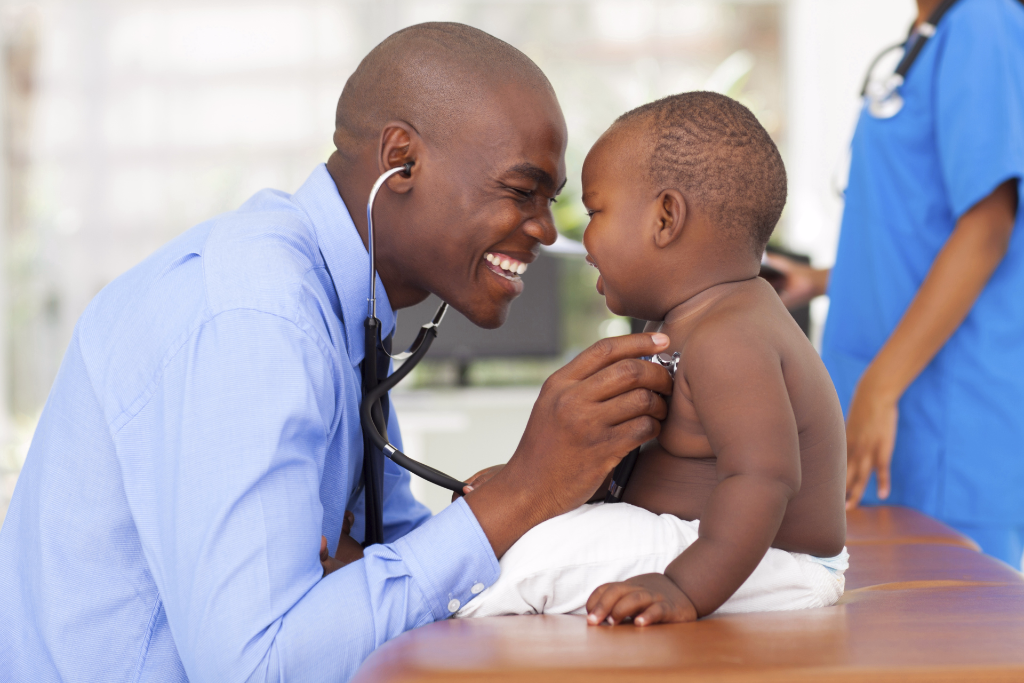A dangerous stagnation in vaccination rates is putting children at risk of preventable diseases around the world, the UN children’s agency has warned, blaming conflict, inequality and complacency.
One in 10 children, totalling 20 million globally, missed out on basic immunisation against the life-threatening infections of measles, diphtheria and tetanus last year, says Unicef.
Since 2010, vaccination coverage with three doses of diphtheria, tetanus and pertussis (DTP3) and one dose of the measles vaccine has stalled at about 86% globally. It needs to be at 95% to prevent outbreaks.
Most unvaccinated children live in the poorest countries or in nations riven by conflict. But in the affluent world, complacency about the childhood diseases which have slipped from view and suspicion of vaccines have led to falls in immunisation coverage and deaths and damage from measles.
Unicef’s data shows that almost 350,000 measles cases were reported globally last year, more than doubling from 2017. Countries with violent conflicts such as the Democratic Republic of the Congo and Somalia had serious outbreaks, but the country with the highest incidence of measles was Ukraine, where vaccination rates slumped to 54% in 2010 and were low for several years before recovering. Vaccine shortages played a part, but so did mistrust of doctors and credence in the theories of anti-vaxxers.
“Measles is a real-time indicator of where we have more work to do to fight preventable diseases,” said Henrietta Fore, Unicef’s executive director. “Because measles is so contagious, an outbreak points to communities that are missing out on vaccines due to access, costs or, in some places, complacency. We have to exhaust every effort to immunise every child”.
The UK is not vaccinating enough children against measles to prevent outbreaks – it is third among affluent countries in the league table for unvaccinated children, after the US and France. Last year more than 60,000 children were not given the MMR (measles, mumps and rubella) jab. The vaccination rate is at 92%.
“Vaccines save up to 3 million lives every year, however public distrust fuelled by insufficient, inaccurate or harmful information means we’re taking a step backwards in the fight against preventable infectious diseases,” said Alastair Harper, director of advocacy at Unicef UK.
“In high-income countries like the UK, the proliferation of vaccine-related misinformation on digital and social platforms is one of the key factors associated with vaccine hesitancy. Anti-vaccination groups are exploiting parents, creating confusion and stoking their fears in order to disrupt regular childhood vaccination schedules.”
Most unvaccinated children live in the poorest countries and are disproportionately in fragile or conflict-affected states. Almost half are in just 16 countries – Afghanistan, the Central African Republic, Chad, Democratic Republic of the Congo, Ethiopia, Haiti, Iraq, Mali, Niger, Nigeria, Pakistan, Somalia, South Sudan, Sudan, Syria and Yemen.
“Vaccines are one of our most important tools for preventing outbreaks and keeping the world safe,” said Dr Tedros Adhanom Ghebreyesus, director-general of the World Health Organization. “While most children today are being vaccinated, far too many are left behind. Unacceptably, it’s often those who are most at risk – the poorest, the most marginalised, those touched by conflict or forced from their homes – who are persistently missed.”
“We have the chance to help them with an inexpensive, widely available intervention,” said Unicef’s principal adviser and chief of immunisation, Robin Nandy. “Immunisation is the silver bullet of public health. One dose once in a lifetime will protect them from a range of diseases like measles.”
Outbreaks of disease are extremely dangerous to the children, to their family and friends and costly for governments. Immunisation, Nandy said, “is far cheaper than investing in curative services”. The return on immunisation has been estimated at $16 to $44 (£13 to £35) for every $1 spent. “It is one of the best buys in public health,” he said.

